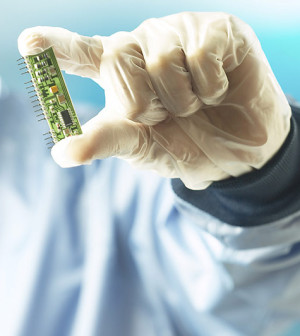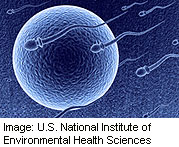- Could Your Grocery Store Meat Be Causing Recurring UTIs?
- Are You Making This Expensive Thermostat Error This Winter?
- Recognizing the Signs of Hypothyroidism
- 10 Strategies to Overcome Insomnia
- Could Artificial Sweeteners Be Aging the Brain Faster?
- Techniques for Soothing Your Nervous System
- Does the Water in Your House Smell Funny? Here’s Why
- Can a Daily Dose of Apple Cider Vinegar Actually Aid Weight Loss?
- 6 Health Beverages That Can Actually Spike Your Blood Sugar
- Treatment Options for Social Anxiety Disorder
Scientists Get Closer to Producing Egg, Sperm From Stem Cells


Researchers say they have used human embryonic stem cells to create cells that develop into eggs and sperm.
While this had already been done using rodent stem cells, this is the first time that these types of cells — called primordial germ cells — have been produced efficiently using human stem cells, according to the team at the University of Cambridge in England.
“The creation of primordial germ cells is one of the earliest events during early mammalian development,” study first author Naoko Irie said in a university news release.
“It’s a stage we’ve managed to recreate using stem cells from mice and rats, but until now few researchers have done this systematically using human stem cells. It has highlighted important differences between embryo development in humans and rodents that may mean findings in mice and rats may not be directly extrapolated to humans.”
The study is published in the Dec. 24 issue of the journal Cell.
More information
The U.S. National Institutes of Health has more about stem cells.
Source: HealthDay
Copyright © 2026 HealthDay. All rights reserved.










